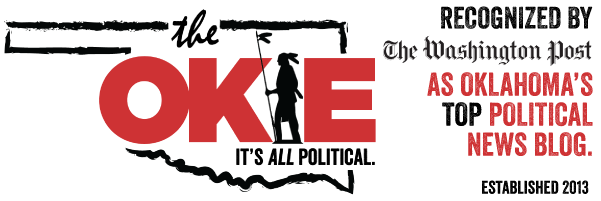Senate Passes Budget Cuts, Fallin Line Item Vetoes; Plans To Call Back For More Revenue
FOR IMMEDIATE RELEASE: November 17, 2017
Governor Mary Fallin Vetoes Most of Revised Budget Bill, Preserves Funding for Core Health, Human Services
OKLAHOMA CITY – Governor Mary Fallin this evening vetoed most of the revised budget bill approved by legislators in special session. She kept intact parts of the bill that temporarily preserve funding for key health and human services until lawmakers return in another special session to approve long-term funding solutions.
Lawmakers failed to act on other requests the governor made in her call for a special session, such as addressing a long-term solution to continuing budget shortfalls; the need for more consolidation and other efficiencies in all areas of state government; clarifying intended exemptions to the new 1.25 percent sales tax on vehicles; and a pay increase for K-12 public school teachers.
The governor vetoed all but five of the 170 sections contained in House Bill 1019X, which was passed earlier in the day by the state Senate and approved earlier this week by the House of Representatives.
“House Bill 1019X does not provide a long-term solution to the re-occurring budget deficits, and within three months we will come back facing an estimated $600 million shortfall,” she said.
Fallin said her action results in amending the general appropriations bill approved in May by lawmakers during the regular legislative session.
“This will preserve a safety net for core health and human services until legislators come back for a second special session, which I intend to call in the near future,” said Fallin.
Fallin’s action keeps intact a $30 million emergency appropriation to the Department of Health, which will allow the agency to make its next payroll and be funded without cuts through the remainder of this fiscal year, which ends June 30.
Her action will provide funding for the short term for three health care agencies that were facing severe cuts because they were to receive most of the $215 million earmarked in a proposed cigarette cessation fee, which was struck down as unconstitutional earlier this year. The Department of Mental Health and Substance Abuse Services, the Department of Human Services and the Oklahoma Health Care Authority were facing cuts unless revisions were made in the current fiscal year budget.
“My action avoids immediate health and human services cuts and provides time for legislators to come back and approve revenue proposals that can provide a permanent fix,” Fallin said.
“As governor, I would like nothing more than to adequately fund agencies. The constant budget crisis has put us in survival mode. I want us to thrive. We will thrive when we can adequately and consistently fund our core services. That will happen when we find sustainable and predictable revenue sources.”
Fallin said she vetoed most of HB 1019X because it came perilously close to using most of the state’s available one-time funds in various accounts and drawing down on available savings in the Rainy Day Fund. Signing the measure would have left the state with few available funds to deal with an estimated shortfall of more than $600 million in the next regular legislative session, which begins in February.
The governor’s action will result in doing away with $60 million in cuts to state agencies and using $60 million from revolving funds, as called for in HB 1019X. The measure also called for using more than half of the state’s $83 million in cash reserves; a smaller amount will be used as a result of the governor’s line-item veto.
“Our inability to find a long-term solution to our budget problem puts our citizens and our economy at risk,” said Fallin. “We cannot give up. We must find solutions. Our citizens want a state government that works for them. They are tired of gamesmanship and want leadership. As difficult as it might be to return to the state Capitol, we must do so. As governor, I pledge, as I have done throughout this difficult period, to work with the Legislature. We came so close, with over 70 percent of the House and over 75 percent of the Senate voting for a viable budget plan.
“Some legislative leaders have stated that revenue measures will be taken up in February when lawmakers return in regular session,” Fallin said. “But I am very skeptical because next year is an election year and the pressure not to do anything will be greater.
“We must find sustainable, predictable recurring revenue to fund our core services and get us out of the constant crisis. Let’s finish our work for the sake of our great state and our hardworking people. I love this state and her people, and I will continue to work tirelessly with the Legislature for them.”
###

